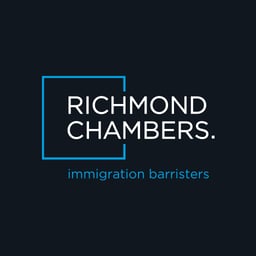News and developments
Tier 2 General Change of Employment FAQs
Under the Immigration Rules, there are different requirements if you plan to change employment while on a Tier 2 (General) visa. We have prepared answers to a selection of questions frequently asked by Tier 2 (General) migrants when changing employment.
What happens if I wish to change employer?
If you are going to change employer, you will need to submit a new Tier 2 application providing the details of your new sponsor. Your new sponsor will need to have a Tier 2 sponsor licence in order to issue you with a new Certificate of Sponsorship (‘CoS’). This means that your new employer must be able to sponsor your application for a Tier 2 visa.
Your new employer may need to carry out a new Resident Labour Market Test (‘RLMT’) before they can offer you the role and assign a CoS to you. They will only be able to offer the role to you if they have completed a RLMT and they can show that no suitable settled worker can fulfil the role or the job is exempt from the RLMT. There are specific advertising requirements. As it can be a complicated process, we recommend that you seek legal advice.
What happens if the new employer does not have a sponsor licence?
If your new employer does not have a sponsor licence, they will need to make a sponsor licence application. We have published a guide for employers on the Tier 2 Sponsor Licence Application, please click here for further information. Most sponsor licence applications are processed in less than 8 weeks.
As above, your new employer may also need to advertise the role for 28 calendar days in two appropriate places in order to meet the RLMT requirement before they can recruit you. There is specific guidance as to the permitted advertising media, and if the RLMT is not conducted correctly, that can affect the prospects of your application being approved. If your sponsor is unsure as to the rules and record keeping duties in relation to an RLMT, we recommend that they seek legal advice.
What happens if I am staying with the same employer but it is a different role?
If you are staying with the same employer, you may need to make a new visa application if the following apply:
Does the Tier 2 cooling-off period apply to a change of employment?
If you hold or held a Tier 2 visa which has expired, you must ordinarily wait for 12 months before making a Tier 2 (General) application. This is known as the ‘cooling-off period’. The cooling-off period starts the day after your Tier 2 visa has expired, or Tier 2 leave has ended. If you left the UK before your Tier 2 leave ended, the cooling-off period can start earlier than the date your leave expired, but only if you can provide the required evidence.
There are however, exceptions to the cooling off period rule. For example, if you have valid leave and apply for an extension in the UK or you are submitting an application for a change of employment, before your Tier 2 leave expires, the Tier 2 cooling-off period does not apply.
When can I apply for settlement?
Subject to meeting the other requirements, you can settle permanently in the UK after being in the Tier 2 (General) category continuously for five years. You may be able to combine time spent in other categories when applying for settlement.
When planning your settlement application, if any of your absences are in connection with employment, you will need a letter from your employer confirming the purposes and period of absences. If you are changing employer, it is worth considering obtaining such letter before you change job.
When should I resign from my previous role?
It is important to carefully plan the timeframe for your resignation (taking into account any notice period), and your change of employment application, to provide your new employer with a realistic start date. Your new CoS can only be assigned 3 months before the start date of your new employment.
If you cease to be employed by your Tier 2 Sponsor, the Home Office will curtail your leave to 60 days ordinarily. If you have not yet found new employment, you can search for new employment in this period, but you will need to factor in the 28 day RLMT and ensure you apply within the 60 days so as to avoid the cooling off period.
If you would like advice as to whether it is possible to make a change of employment application prior to resigning, any associated risks, and advice as to the relevant timeframe in relation to your personal circumstances, please contact our immigration barristers.
Do my dependants need to apply for leave to remain at the same time?
Your dependants do not need to apply for leave to remain if you change employer. They can remain in the UK until their current leave expires. They can later submit an application for an extension to their dependant visas to extend their leave to expire on the same date as yours.
Is there any other information that I should be aware of when considering a change of employment?
The maximum time you can stay in the UK in the Tier 2 (General) category is 6 continuous years. There are a number of exemptions to this 6 year restriction. If you have any questions, please contact our immigration barristers.
You can continue to work for your previous employer until the start date on your new CoS, provided your previous leave has not expired. Your new application must be approved before you can start your new job.
Contact our Tier 2 Change of Employment Immigration Lawyers
It is important to prepare the right application when submitting a change of employment application. For advice, please contact our immigration barristers in London on 0203 617 9173.
